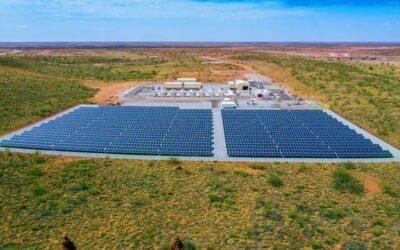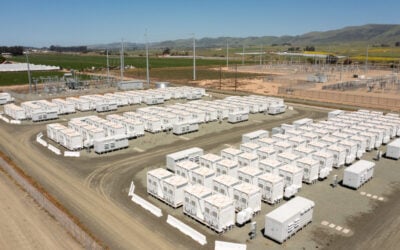Image: National Grid.
The number of battery storage projects to have won 15-year contracts in the latest Capacity Market auction is a sign of “considerable confidence” in the technology, according to the director of the Electricity Storage Network.
The results of the latest T-4 auction published this morning show that contracts totalling 3.2GW have been awarded to storage projects, with a proportion expected to be met with batteries.
Enjoy 12 months of exclusive analysis
- Regular insight and analysis of the industry’s biggest developments
- In-depth interviews with the industry’s leading figures
- Annual digital subscription to the PV Tech Power journal
- Discounts on Solar Media’s portfolio of events, in-person and virtual
In a departure from normal results in which the technology fails to gain more than a four year contract, a number of projects ranging in size have successfully secured long term contracts usually awarded to other projects classed as new or existing generators.
Speaking to Energy Storage News this morning, Anthony Price, director of the UK’s Electricity Storage Network, said the results showed a step-change in confidence in the technology.
“There was no reason why storage could not participate in the long term contracts [but] some folk in the industry didn't feel necessarily comfortable [that] storage technologies had matured sufficiently.
“But with significant changes that have taken place in the industry over the last couple of years, I think that a number of providers have become more comfortable with the idea of storage taking part,” he said.
“The significance is [that] without any greater clarity on the technical requirements of the capacity market, the bidders in the long-term market have expressed considerable confidence [and] are prepared to take a risk on how they will be deployed.”
Four of the projects to win under National Grid’s recent EFR tender – 10MW Cleator and 40MW Glassenbury projects by Low Carbon; EDF’s 49MW West Burton site; and the 10MW Blackburn Meadows project by E.ON UK – were successful in this week’s auction, which according to Price is a further sign of interest and confidence in battery storage.
He said: “The tender results show that people are prepared to invest money against a known income stream and if they can then add on the Capacity Market payment then it looks to be quite an attractive business opportunity, which is what the industry has been saying for a long time.”
James Court, head of external affairs at the UK's Renewable Energy Association, added: “Following the success of the National Grid EFR, this is another impressive step forward for energy storage and should give government, industry and investors confidence.
“The fact that storage has bid competitively demonstrates it is already commercial, and has the flexibility to provide multiple services which can lead to separate income streams, making the financial case for storage even more compelling.”
Despite this confidence, Price expressed some concern over the continuing lack of clarity regarding the regulations governing the Capacity Market, which remain consistently vague. They do not outline the requirements of winning projects in how to meet the possible demands of a ‘Capacity Market event’ in which providers must supply energy at times of system stress.
Price warned that there is no clarity over how contract winners are intending to use their batteries to meet these requirements, which could potentially last several hours.
Therefore, despite this significant moment for UK battery storage, he is advocating for continued pressure on policy-makers to provide greater clarity and rules in the capacity market that recognise the value of storage.






